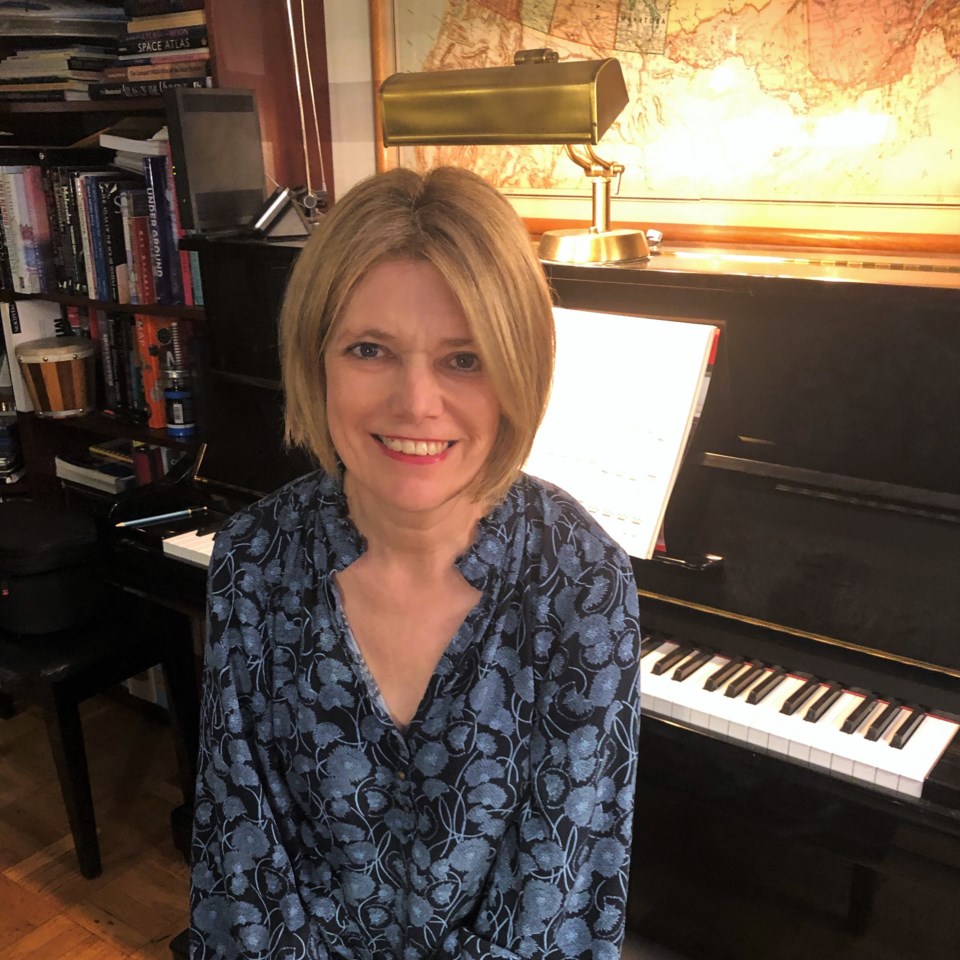Sharon Paterson has been a music teacher for years, including two-and-a-half at Carnarvon Elementary in Vancouver where she teaches Kindergarten to Grade 7.
Like it has been for many of us, this past year has been incredibly different and stressful for her; she remembers the stress starting just before spring break 2020. That was the moment she realized the coronavirus (COVID-19) pandemic was as big as it was.
"On the last day leading up to spring break, they told us to bring our laptops home and stay tuned to the news," Paterson recalls. "Seeing what was happening elsewhere in the world, I had a real sign this was not usual."
The local is a self-described "news junky," so she was keeping track of what was going on in other countries, like Italy. After a couple of days into spring break, teachers in Vancouver were told in-person classes would be delayed.
That's when things really began to change, as teachers were taught to use new online teaching platforms. For Paterson, the split between work and home life began to blur.
"I think a lot of people who work from home have this experience. It was hard to stop working," she says. "It was almost addictive. There was always more to do."
As summer approached, she transitioned to part-time private music lessons, but focused on the online aspect.
Returning to school in September was difficult.
"The fall was the tough part for me," she says, describing the preparations that were taken.
Music teachers and librarians had a different situation than class teachers as they taught multiple classes. The BC Music Educators' Association helped by holding meetings and townhalls to share best practices.
"So for me, I was excited to be able to teach music, but it was stressful because I was teaching half the school," Paterson says.
Over the course of a week, she'd see 180 students from five different cohorts.
And Paterson was the only one wearing a mask; mask-wearing rules have recently changed for some elementary students.
"I knew going in I wanted to teach music. I'd worked hard in the summer to educate myself to do it safely," she says, but adds it was still the most stressful period of the pandemic as hundreds of new cases were announced each day, the vast majority in the Lower Mainland.
"The stress was phenomenal. It was really the highest amount of stress I've had in my teaching career, and I've been teaching my whole life."
That stress affected all aspects of her day. She wasn't able to sleep properly.
Other things added to the stress; her husband has asthma, meaning a case of COVID-19 she brought home from work could be particularly problematic for him. And, in an effort to follow public health recommendations, she hasn't seen family like her mom and sister for over a year, even though they live nearby, in Parksville.
It was around this time a Surrey music teacher, who was teaching in similar circumstances, ended up in the ICU with COVID-19. Paterson remembers Dr. Bonnie Henry talking about reviewing regulations, but "there was nothing."
While Carnarvon hasn't had any exposures, the two schools Paterson's kids go to have.
She adds the district and school community were both supportive of her concerns.
"We developed a mask culture at my school," she says. "The kids have been great and they're all wearing masks; that really helped my stress level."
It meant she could focus on the music and not what was in the air.
The culture took time to build, though.
"It's hard to teach guitar and ukulele over a mask," she notes. The school got her an amplification device to allow her students to hear her. Now that masks are common in the music classroom, she says students are more relaxed.
She ended up taking her concerns to her local MLA, George Heyman, and the pair had a discussion.
Aside from the masks, teaching music during a pandemic has increased Paterson's workload in other ways.
"We have to be careful; they can't share instruments," she says. "When I tune the guitars, I have to disinfect them."
"All my recesses and lunches, I was constantly cleaning and disinfecting," she adds.
There's a joke with colleagues about how much music teachers smell like Lysol at the end of the day.
It's worth it, though, Paterson believes. Music helps the kids deal with their own stress.
"It's really important for the kids to have music; my district clearly believed that too," she says. "The arts community has been devastated by the pandemic, but we rely on it to get through the pandemic."



